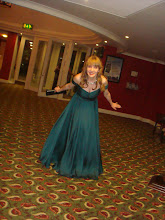1)Defining Genre:
Genre isn't fixed/system.
Identify Generic ConventionsWhat you would expect to see in a filmExample: Cowboy film: Horses
Genre isn't fixed/system.
Identify Generic ConventionsWhat you would expect to see in a filmExample: Cowboy film: Horses
Plot Structure > Character types >
Narrative Structure
-- what type of villan/hero is associated with that genre
-- what type of villan/hero is associated with that genre
--EXAMPLES
--Vladimir Propp's Theory (Briefly)
--Vladimir Propp's Theory (Briefly)
Hybrids?
2) Why do people make genre films?
-most blockbusters are genres because they are set up of familiar generic conventions-genre film set up audience expectations-similar actors, props, sets, costume
-Expect
things to happen but hope they happen differently to the last genre
film.
-Important
for filmmakers: Millions of £/$ invested in these films-More likely to invest in a genre film in Hollywood - guaranteed
more success in terms of profit
-Independent
filmmakers are less likely to make genre films (high production
costs/values)-Independents can be more edgy and
unique
-Good script,
good story > genre isnt as important
CONTEXT AND
CULTURE
-why are
certain types of film popular at certain times?
--westerns: disappeared and then reappeared suddenly, Brokeback Mountain, True
Grit, No Country for Old Men, Cowboys and Aliens
(hybrid)
-Social
Realism: Romcoms, Period Dramas, more popular in
Britain
--This is
England (culture, about hard times) SHORT FILMS AREN'T A GENRE
Factors to make a good short film > simple narrative with a twist > few characters > few settings
TASK
1)Defining a Genre
3)Explaining why genre is important and expectation of audience
4)How it has developed and evolved over time
WHAT EXPECTATIONS HAVE WE SET UP FOR OUR AUDIENCE? WHICH ONES DID WE FULFILL?


